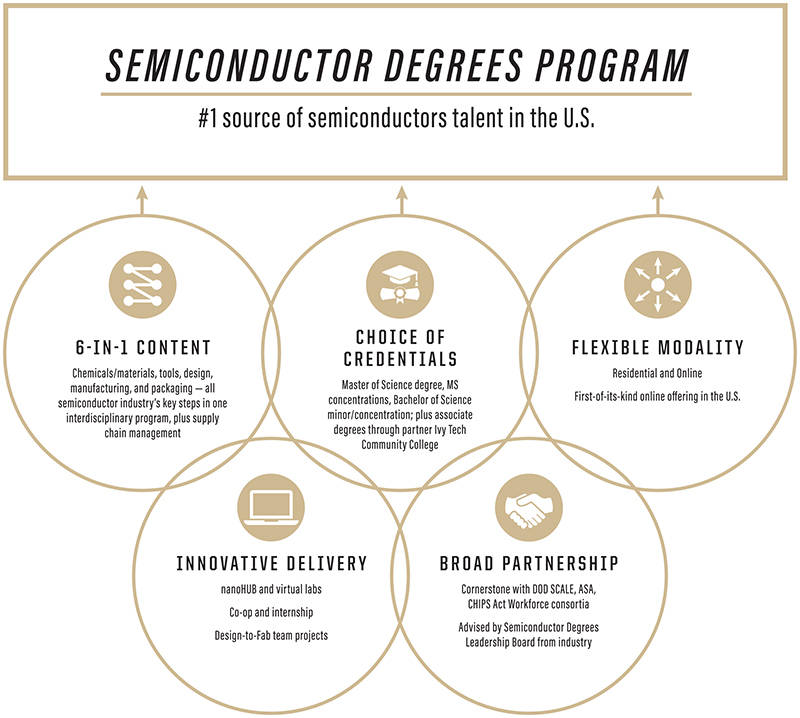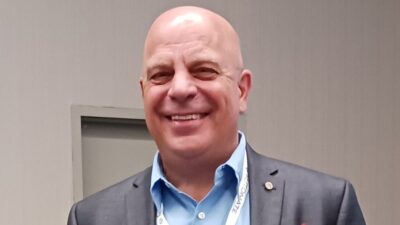Purdue University has launched a comprehensive set of interdisciplinary degrees and credentials in semiconductors and microelectronics.
In the next five years, a minimum of 50,000 trained semiconductor engineers will be needed in the United States to meet the overwhelming and rapidly growing demand. In response, Purdue University has launched a comprehensive set of innovative, interdisciplinary degrees and credentials in semiconductors and microelectronics.
The Semiconductor Degrees Program (SDP), the suite of innovative Purdue degrees and credentials, is designed to educate graduate and undergraduate students, enabling a quick ramp-up of skilled talent and creating the next-generation of semiconductor workforce to reassert American preeminence in this critical industry.
Unveiled as a plan in September 2021 and officially launched in May 2022, Purdue SDP touts five distinct features that set it apart from other educational programs:
- 6-in-1 content: Chemicals/materials, tools, design, manufacturing, and packaging — all semiconductor industry’s key steps in one interdisciplinary program, plus supply chain management.
- Choice of credentials: Master of Science degree, stackable certificates at the postgraduate level, Bachelor of Science minor/concentration; plus, associate degrees through partner Ivy Tech Community College.
- Flexible modality: Both residential and online programs. First-of-its-kind online offering in the United States dedicated to semiconductors.
- Innovative delivery: Through online learning platform nanoHUB and virtual labs, co-op and internship opportunities, and design-to-fab team projects.
- Broad partnership: Cornerstone with Department of Defense’s SCALE (Scalable Asymmetric Lifecyle Engagement) program, American Semiconductor Academy (ASA), and other Creating Helpful Incentives to Produce Semiconductors (CHIPS) Act workforce consortia. SDP is also advised by a leadership board of industry senior executives as listed below.

“The need to restore self-reliance in the semiconductor industry is both an economic priority and a national security imperative,” Purdue President Mitch Daniels said in a press release. “We are proud of Dean Chiang and his colleagues for placing Purdue in a position of national leadership in this all-important endeavor.”
Semiconductor chips are the foundation upon which all modern digital economies are built. As electronic devices have become more complex, so have the intricacies of semiconductors across the supply chain. CEOs of leading semiconductor technology companies (see their testimonials below) have stressed the vitality of bolstering semiconductor education and have publicly appealed to university officials across the country to expand the pool of skilled, credentialed talent to meet their need.
In 2021, Congress passed authorization of the CHIPS for America Act, legislation that recognized the critical role the U.S. semiconductor industry plays in America’s future. Urging a rapid appropriation of the CHIPS Act, Mung Chiang, the John A. Edwardson Dean of the College of Engineering and Purdue’s vice president for strategic initiatives, in December 2021 gave testimony titled “Ensuring American Leadership in Semiconductors” during a hearing before the U.S. House of Representatives’ Science, Space and Technology Committee.
– Edited by Chris Vavra, web content manager, Control Engineering, CFE Media and Technology, [email protected].



